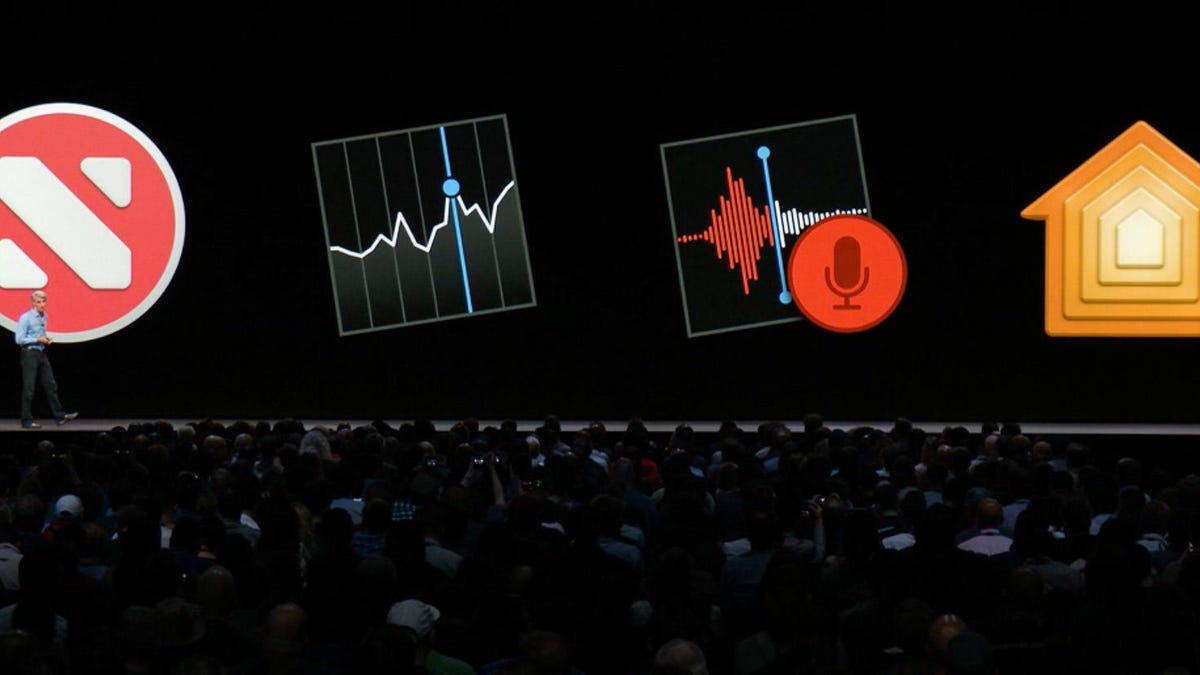Apple brings iOS apps into Mac, but won’t merge platforms
Developers will be able to bring their iPhone and iPad apps to Mac in 2019.

Four apps Apple wrote for iOS apps have been adapted to run on MacOS Mojave.
Macs will be able to run some apps written for iPhones and iPads on the next-generation MacOS Mojave software, a big new step in bringing the two technology platforms closer together.
Craig Federighi, Apple's senior vice president of software engineering, announced the change Monday at Apple's Worldwide Developer Conference in San Jose. He said Mojave will include four apps Apple itself brought from its iOS mobile software to MacOS: Home, Stocks, News and Voice Memo.
"There are millions of iOS apps out there," Federighi said. "We think some of them would look great on the Mac."
For now, it's only Apple that has the ability to move iOS apps to MacOS. But that'll change in 2019.
"Phase one of this effort is to test it on ourselves," Federighi said. "This will be coming to developers Next year so you can easily bring iOS apps to the Mac."
Apple will offer tools called UIKit to help developers bring iOS apps to MacOS starting in 2019.
The move brings iOS and MacOS a lot closer. The software platforms already have a few shared features, such as Launchpad and the dock. But Federighi made clear Apple's thoughts on merging the two operating systems as the word "No" dropped on the screen behind him in giant letters.
Apple will help iOS developers repurpose their apps for MacOS with an updated UIKit that makes it easier to adapt to Mac features not present on iOS apps. These include scroll bars, mouse input, window resizing and related controls, copy and paste, and drag and drop, Federighi said.
Will Apple merge MacOS and iOS? No, says Craig Federighi, Apple's senior vice president of software engineering at WWDC 2018.
"iOS devices and MacOS devices of course are different," Federighi said. "That makes porting an app from one to the other some work. We wanted to make that much easier. We've taken some key frameworks from iOS and brought them to the Mac."
MacOS and iOS apps are written using frameworks, which software draws on for tasks such as accelerating graphics, rendering text or tracking fingers on a touch screen.
Years from now, though, Federighi's emphatic "no" could need an update, said Patrick Moorhead, principal analyst with Moor Insights and Strategy.
"Long-term, I do think we will see iOS and macOS merged. This is a stepping stone," letting developers to leverage iOS software for Mac apps, he said. "This isn't easy."
For more details, check CNET's continuing WWDC coverage.

